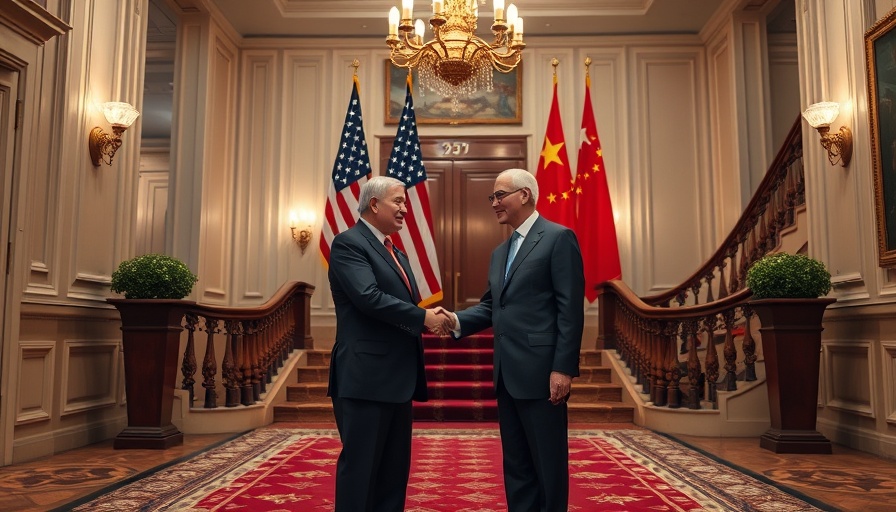
US-China Trade Agreement: A Turning Point for Investors
The recent trade agreement between the United States and China is stirring up various reactions among analysts and investors alike, raising important questions about the implications for the stock market and global investments. As trade tensions have historically impacted economic relationships, understanding the nuances of this agreement is crucial for those engaged in stock market news and investment strategies.
Market Reactions and Economic Indicators
Just hours after the announcement, stock market indices surged, indicating investor optimism. The Australian Dollar, for instance, saw a slight uptick against the US Dollar, while the SPX rose by 0.55%. With major indexes positively responding to the news, many analysts believe this agreement could signal a stabilizing effect on international trade, fostering renewed growth in both nations. Analysts predict that sectors like technology stocks and healthcare stocks might see substantial growth as companies regain access to crucial markets.
Investor Sentiments on the Agreement’s Potential
The long-term impact of the US-China trade agreement could influence portfolio diversification strategies significantly. Many investors are evaluating whether to increase their allocations towards international investments and emerging markets investments. The sentiment surrounding this agreement echoes the need for risk management in investing as global markets remain volatile.
Weighing Pros and Cons: Diverse Perspectives
While many celebrate the potential for economic recovery, there are voices of caution. Some analysts argue that the agreement doesn’t resolve fundamental trade disparities, particularly around technology and intellectual property. This leads to a broader discussion on international investing and the inherent challenges it poses. Investors must consider both risks and opportunities when allocating funds, especially in sectors impacted by these ongoing negotiations.
The Future of Investment Strategies
As a result of the recently forged agreement, experts suggest adapting investment strategies across several fronts. Dollar-cost averaging could prove beneficial for investors looking to mitigate the risks associated with market volatility as they enter positions in affected sectors. Furthermore, engaging with impact investing could attract those interested in sustainability, aligning their portfolios with companies that are responsive to global trading standards.
Practical Insights for Savvy Investors
The trade deal's immediate ripple effect may open doors for real estate investment trusts (REITs) and tech startups that are eager to tap into alternative investments. Building a resilient portfolio will require thoughtful asset allocation. Now more than ever, understanding the impact of news on stock market volatility and employing strategies like buy-and-hold investing or fundamental analysis will be key in navigating the uncertain waters ahead.
Conclusion: Embracing Change in the Investment Landscape
In conclusion, the recent US-China trade agreement not only reshapes the relationship between two global giants but also redefines the investment landscape for individual and institutional investors alike. Those who remain informed and adaptable will likely find long-term success in these evolving markets. By staying vigilant and utilizing tools for investment research, investors can make educated decisions that leverage new opportunities created by shifting economic dynamics.
 Add Row
Add Row  Add
Add 



Write A Comment